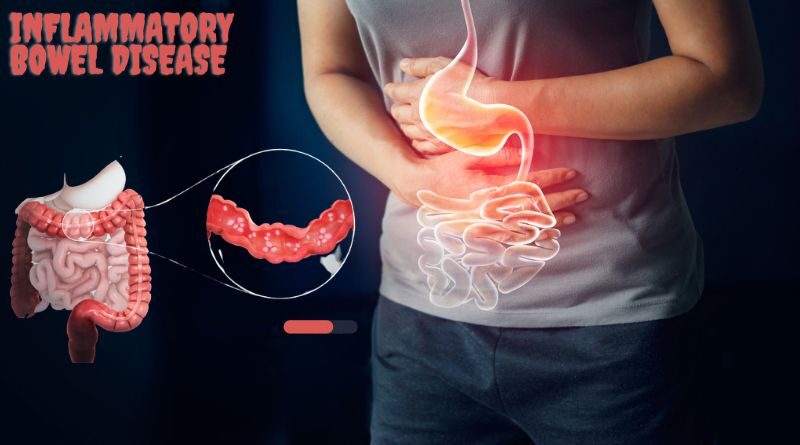7 Things You Should Know About Inflammatory Bowel Disease (IBD) and its Symptoms
Inflammatory bowel disease, or IBD, encompasses two separate illnesses — Crohn’s disease and ulcerative colitis — both of which affect the intestines and cause pain, cramping, diarrhea, constipation, and other symptoms. More than 2 million Americans suffer from IBD and don’t know it; symptoms often manifest in childhood or early adulthood, but some people are diagnosed later in life as well. Here are seven things you should know about inflammatory bowel disease.
1) IBD and IBS are different
Both Crohn’s disease and ulcerative colitis are types of inflammatory bowel diseases (IBD). However, IBD is not the same as irritable bowel syndrome or IBS. The two most common forms of IBD are Crohn’s disease and ulcerative colitis. These conditions are characterized by inflammation anywhere in the GI tract, from the mouth to the anus. IBD can cause diarrhea that lasts a few days or weeks and then goes away for periods of months or years before it recurs again. This symptom distinguishes it from IBS, which generally does not cause a long-term change in stool frequency.
2) Crohn’s disease is more common than ulcerative colitis
Crohn’s disease is a chronic condition that causes inflammation of the gastrointestinal tract and can lead to pain, malnutrition, fever, bowel irregularities, and anemia. In contrast to ulcerative colitis which is only limited to the colon area of the intestine.
There are so many myths out there surrounding inflammatory bowel disease but knowing what you’re going through is vital. From your diagnosis process all the way to managing symptoms. Read these 7 things you should know about inflammatory bowel disease to arm yourself with knowledge before taking on this journey.
3) Symptoms vary from person to person
Since symptoms vary from person to person, it is important to know the signs of IBD so you can act quickly. Some people may experience cramping and pain in their abdomen, which may worsen with time. Others may not experience any noticeable changes in bowel movements or have no stomach pain at all. There are six common types of IBD: ulcerative colitis, Crohn’s disease, indeterminate colitis, IBS-D (diarrhea predominant), IBS-C (constipation-predominant), and proctitis (problems with the rectum).
4) Treatment varies depending on the type of IBD you have
The symptoms of inflammatory bowel disease (IBD) vary depending on the type you have. Crohn’s is an example of one type that usually starts in the lower parts of your intestines. When it doesn’t heal, it can cause stomach pain, diarrhea, rectal bleeding, fever, and weight loss. The diet helps with symptom relief for people with Crohn’s. Ulcerative colitis (another form) often has loose stools or blood in the stool, more frequent need to go to the bathroom, pain or cramping during a bowel movement, and fever less than 101 degrees Fahrenheit when other illnesses are ruled out by a doctor.
5) Diet plays a role in managing symptoms
Knowing that food choices can impact symptoms of IBD is key to living life comfortably. Here are some things to know about inflammatory bowel disease (IBD) symptoms and diet:
- Vegetables, legumes, whole grains, and healthy oils should be the cornerstone of a healthy diet for anyone with IBD.
- Foods rich in fibers help create bulk which may ease or prevent constipation or painful cramping caused by IBD. Fiber also helps food stay moving through the intestines, preventing them from getting back up in a dangerous situation. Foods rich in fiber include vegetables, legumes, whole grains, and nuts.
- Carbohydrates are important because they’re easily digestible but provide energy as well as fiber. Foods high in carbohydrates include fruit, pasta, rice, and potatoes. Healthy sources of fat like olive oil will also keep you feeling full longer and provide essential nutrients for your body.
- It’s not just what you eat but when you eat it! Eating smaller meals throughout the day prevents your stomach from being too full at any one time which can lead to pain associated with diarrhea or constipation. It’s best to avoid eating right before bedtime since this will likely lead to discomfort while trying to sleep on an already-full stomach.
6) Exercise improves symptoms
If you have been diagnosed with IBD, one of the best things you can do is to begin exercising. Exercise will help strengthen your body and make it stronger to manage symptoms in the future. It also helps alleviate some of the discomforts that may be experienced while getting on with day-to-day life. There are two types of exercise recommended: strength training and cardio.
When starting out, start slow so your body has time to adjust. Strength training should be done 3 times a week for 30 minutes each session, with at least 2 days of rest between sessions. As for cardio, 15 minutes per session or 45 minutes three times a week is recommended.
7) Take steps now to manage your symptoms in the future
Inflammatory bowel disease is a chronic condition that causes pain in the lower abdomen, diarrhea, weight loss, fever, anemia, and much more. Taking care of your body can help prevent symptoms from reoccurring. This includes getting plenty of sleep every night, following a healthy diet with regular exercise, meditating every day to reduce stress levels as well as treating inflammation issues with natural anti-inflammatory agents like turmeric or ginger root. Not following these steps can lead to a relapse of inflammatory bowel disease symptoms.
1- Sleep enough hours each night: research has shown that people with inflammatory bowel disease who got enough sleep reported fewer symptoms in their lives. Getting seven to eight hours of sleep a night can also decrease the risk for obesity and type 2 diabetes, which is both common side effects for those living with inflammatory bowel disease.
2- Eat foods low in fat and high in fiber: Eating high-fiber foods such as fruits, vegetables, whole grains (rice), beans (lentils), and bran cereal will make it easier for you to go because they are low in fat but high in fiber which will cause them to move through your system without stopping up the pipes or taking too long on the way out. A lack of dietary fiber can cause constipation which is not only uncomfortable but also puts you at risk for other problems such as colon cancer.
3- Exercise regularly: Exercise helps stimulate blood flow, improves mood, burns calories so you don’t feel so hungry all the time, and boosts energy levels! It’s important to start slow by going for walks outside or around the block when first starting an exercise routine. Increase intensity gradually until your muscles are sore and then back off until they recover before exercising again.
For more updates regarding Health & Fitness, keep browsing Blogs Gurru.




